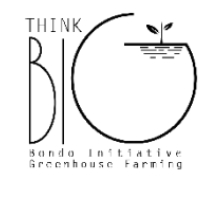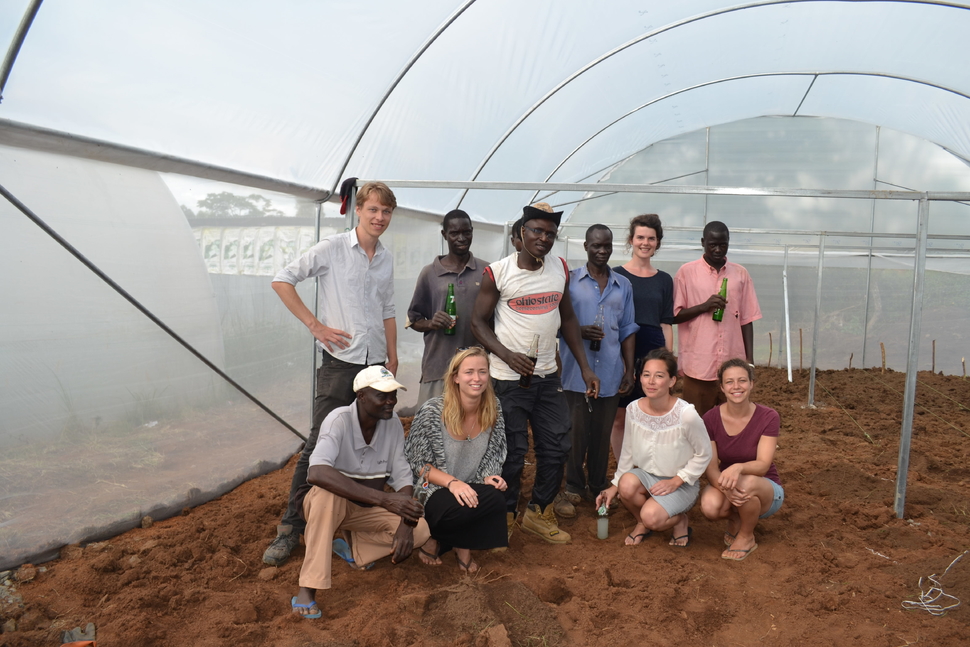
Thus we started developing new strategies. It was how we came upon the idea of starting a foundation. The foundation offers a course on greenhouse farming to local farmers, using the greenhouse that we built as a demonstration greenhouse. Farmers who follow and complete the course can apply for their own greenhouse. This greenhouse would be placed on their private property and leased by the foundation.
This concept was the starting point for our business model. In this Business Model Canvas, we will demonstrate the objectives of the foundation, its value propositions and its organizational structure.
The Foundation
BIG, The Bondo Initiative Greenhouse farming Foundation will be managed mainly by
local people. The following candidates are suitable:
1. Mr. Jackson Achuti.
Achuti has many contacts among the local farmers and foundations. His job is to give
assistance to local farms and create awareness. He can convince farmers to join the
course on greenhouse farming and he will be responsible for the follow-up assistance
offered to the farmers who complete the course.
2. Dr. Darius Andika.
As a professor in agriculture, Dr.Andika will be a suitable candidate to be in charge
of the course.
Furthermore, the BIG foundation will need the following additional candidates:
1. A person of a local foundation leading the financial department. She/he must ensure
the reliability of the foundation and be on site to visit farmers who are behind on
payment.
2. A local farmer to represent the needs of the farmers.
The students of the TU Delft will be responsible for the start and implementation of the
plans for the foundation. Two of us will be on the board of the foundation until the next
student group comes to Bondo.
Partners
BIG’s partners are JOOUST, a greenhouse manufacturer and students from the TU Delft. The university will provide property to build the demonstration greenhouse and the necessary facilities for the course. The greenhouse manufacturer will build the greenhouses for the purpose of leasing. The TU Delft students will keep the foundation up and running until it is sustainable.
Customer Segments
The first customer segment is people with a farming background. They will follow the course and lease the greenhouses. Sponsors, our second customer segment, cover the initial costs of the greenhouses. These include NGO’s, the Ministry of Agriculture and private sponsors. Both segments have different channels, customer relationships and value propositions.
Value Proposition
Our goal is to make greenhouse technology accessible and reduce the risk of harvest failure. The value proposition includes a course on greenhouse farming, greenhouse rental and follow up assistance, with which we want to reach our first customer segment. To our second customer segment we propose a contribution to sustainable development.
Cost- and Revenue Structure
The farmers must pay a fee for the course to cover the initial costs. To introduce the course to farmers, the pilot will be given for free by Mr. Achuti. In this way, we are able to evaluate, reorganize and rewrite the course if necessary without disappointing the farmers.
After completing the course, participants can apply for the greenhouse lease. To reduce the risk of failure, only motivated and capable farmers will be considered. They can apply by writing an application letter and a business plan, they need to show motivation throughout the course and they need to take an exam to prove their capability. When the greenhouse is constructed, they pay a fee after every crop cycle. Aside from this fee, the farmers will have an average daily income from the greenhouse of 400 KSH, using the rates of 2015. After 5,5 years the debts will be repaid and the farmer can keep the greenhouse. The BIG foundation will have money to buy new greenhouses for new customers.
Please contact us for the complete business model. For now, the foundations of the BIG foundation have been laid. It is up to the next group of students to further develop the foundation and make it a sustainable organization.
